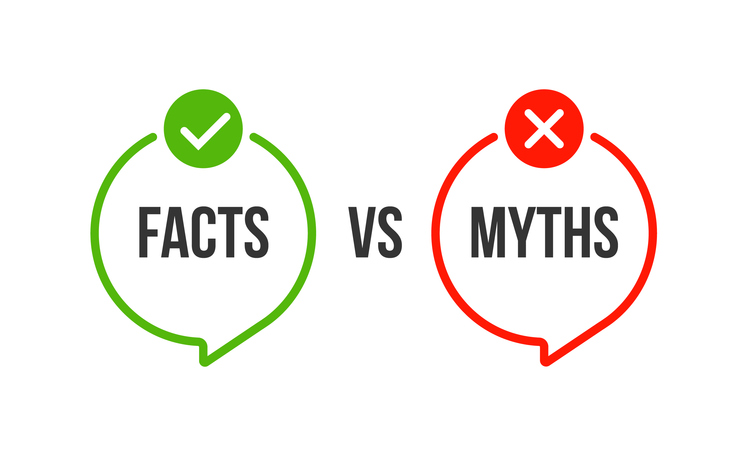What legal advice did the Seattle City Council receive in 2014 concerning its authority to impose an income tax? Thanks to a recent legal settlement we can now answer that question. Last week Seattle settled a public records lawsuit with Washington Policy Center (WPC) providing us a copy of its November 2014 income tax legal memo and several 2017 emails exchanged between Councilmember Bagshaw and her husband, Bradley Bagshaw that had been previously redacted under claim of spousal privilege. The 2014 Seattle legal memo was produced in response to an income tax proposal from Councilmember Sawant. The memo clearly stated that Seattle is prohibited from imposing an income tax. Yet that is exactly what the city attempted to do in 2017.
In 2014, Seattle's attorneys gave the city council the following advice:
- “You asked whether the City Council could impose a ‘millionaire’s tax,’ i.e. an income tax on high incomes. The short answer is that the City cannot, even if the tax is framed as an excise tax. The City cannot impose such an income tax because the Washington Supreme Court has ruled that a graduated income tax violates the state constitution and because the legislature has not authorized cities to impose an income tax. In fact, the legislature specifically prohibits cities from imposing a net income tax.”
- “Former Supreme Court Justice Philip Talmadge and constitutional law expert Hugh Spitzer debated whether the current court would follow the Culliton line of cases. Justice Talmadge said, ‘Washington law is unambiguous. Income is property.’ He concluded that I-1098 ‘would violate Washington’s Constitution’ and quoted a 1974 Attorney General Opinion…” [This footnotes WPC’s I-1098 Talmadge letter]
- “There is some speculation that the City could avoid the Culliton decision by framing a high-earner income tax as an excise tax on the privilege of earning income. But that would not affect the constitutionality of the tax. The court looks at the actual character of the tax and not just at the label. In fact, in Jenson, the second case in which the court overturned a state income tax in the 1930s, the legislature characterized the tax as an excise tax on the privilege of receiving income. Despite that characterization, the court ruled that the tax was an unconstitutional income tax…”
- “The legislature has not granted cities the authority to impose an income tax. In fact, the legislature has specifically prohibited cities from imposing a net income tax. Under RCW 36.65.030, ‘A county, city, or city-county shall not levy a tax on net income.’ This statute prohibits the City from imposing the type of tax that was at issue in Culliton and that was proposed on a state-wide basis by I-1098. Even if that statute did not exist, the City would still need an express grant of authority from the legislature to impose a net income tax.”
- “Conclusion. To summarize, the Washington Supreme Court ruled in the 1930s that income is property and that a tax on income is subject to the same constitutional constraints as any other tax on property. That means that an income tax must have a uniform rate and that the tax rate is subject to the one percent cap. The court has rejected prior efforts to characterize an income tax as an excise tax on receiving income. Finally, cities must have express authorization from the legislature to impose a tax. The legislature has not authorized cities to impose an income tax and, under RCW 36.65.030, prohibits cities from levying a net income tax. Finally, the Washington Supreme Court has ruled that the authority of cities to license for revenue does not permit cities to impose an income tax or an excise tax on earning revenue.”
In short, city attorneys made it very clear that Seattle was restricted from imposing an income tax by law and the constitution. Yet they did it anyway. And they continue to spend taxpayer dollars on their misguided political effort to get the Court to go around the people and allow for graduated income taxes where they've been prohibited for almost a century.
This 2014 Seattle income tax memo also clearly contradicts the 2018 amicus brief filed by the Association of Washington Cities (AWC). AWC audaciously argues in its brief that there are no restrictions on cities imposing an income tax.
While normally we would not be able to receive a copy of the 2014 Seattle legal memo, WPC challenged the claim of attorney-client privilege since the memo was shared with the Economic Opportunity Institute (EOI), a nonprofit, progressive, public-policy advocacy organization. EOI used the legal memo to craft its campaign to try to set up a test case to the state’s constitutional restriction on graduated income taxes. Here are quotes from a 2015 EOI memo explaining its plan:
- “The Economic Opportunity Institute, Washington Education Association, SEIU 775 and other parties wish to enact a local initiative that, if possible (1) sets up a legal challenge to current law in Washington that holds graduated income taxes are unconstitutional…”
- “Imposing an income tax, or proxy thereof, by city initiative will be difficult. While there are arguable pathways, none directly tax individual income and all come with risk of invalidation. Any initiative should be framed as a privilege tax or capital gains tax and should be run in Olympia and/or Seattle.”
Along with the 2014 Seattle income tax memo, WPC received several emails exchanged between Councilmember Bagshaw and Bradley Bagshaw. These emails directly related to the 2017 effort in Seattle to impose an income tax. Here is some of the advice that was provided to the Councilmember:
- “If the City of Seattle imposes the tax on adjusted gross income being currently discussed, it would in all likelihood be held invalid under RCW 36.65.030 in any court challenge. If a court were to invalidate on this statutory basis, it would likely not reach the issue of whether an income tax is consistent with the Washington Constitution.”
- “In my opinion, this tax will not survive a court challenge for two reasons. First, cities are prohibited by statute from enacting any tax on net income. Second, the proposed tax would be unconstitutional under current Washington precedent holding that ‘income taxes’ are ‘property taxes’ which the Washington Constitution requires to be uniform, that is, not progressive. The precedent is from the 1930s and runs contrary to most modern thinking, and forcing the Supreme Court to reconsider this ruling is one reason advanced for pursuing this tax. However, given the statutory prohibition against cities enacting income taxes, it is unlikely that a court would even consider constitutionality and simply reject the tax on statutory grounds. The tax as currently proposed would accomplish nothing.”
- “In contrast, the progressive tax on net income currently proposed would do nothing to make our tax system more equitable because it would never become law. It would even fail to achieve its more limited goal of forcing the Supreme Court to reconsider the constitutionality of a progressive income tax in Washington.”
- “As far as the position paper reads, this is a tax without a mission. ‘Let’s raise $100 million because we can!’ is a poor argument that plays right into the Republicans long-standing criticism of the ‘tax and spend Democrats’ except it’s worse here — the Democrats don’t even have a spending plan, just a tax plan. Instead, how about attacking the problem that the tax is designed to address by using the money raised to reduce the highly regressive sales tax. When the new Sound Transit tax kicks in this coming April, our sales tax rate in Seattle will be 10.1%, with 2.7% going to the City of Seattle. I suggest using the $100 hundred million (or the $40 million if we go for the sure thing) to reduce or eliminate that 2.7%. It would make our tax system substantially more progressive and help retailers attract business to Seattle. Win — win.”
- “A sound argument can be made that a Constitutional interpretation long relied upon is best changed by a Constitutional amendment, not by the Court. This argument will have extra force in our fine state where income taxation is politically poisonous outside Seattle, and where Supreme Court judges are, as we and they well know, elected statewide.”
Washington voters have rejected six proposed constitutional amendments to allow a graduated income tax. This may explain why income tax supporters are no longer trying to amend the constitution but instead are pursuing strategies to set up a lawsuit to try to get the court to do what voters won’t. A current example includes the effort by some lawmakers to pass an income tax on capital gains.
Earlier this year several Democratic lawmakers also filed an amicus brief in the Seattle income tax case asking the court to overturn nearly a century of case law prohibiting a graduated income tax without a constitutional amendment.
The courts should not be used to circumvent the people on income taxes. As state Supreme Court Justices told lawmakers in an unanimous 1960 ruling, they needed to first ask voters to amend the state constitution if they want to impose an income tax.
Additional Information
WPC income tax public records lawsuit
Public records settlement agreement
Judge’s April 9, 2019 order
2014 City of Seattle income tax legal memo
Councilmember Bagshaw emails
Economic Opportunity Institute emails referencing 2014 Seattle legal memo






